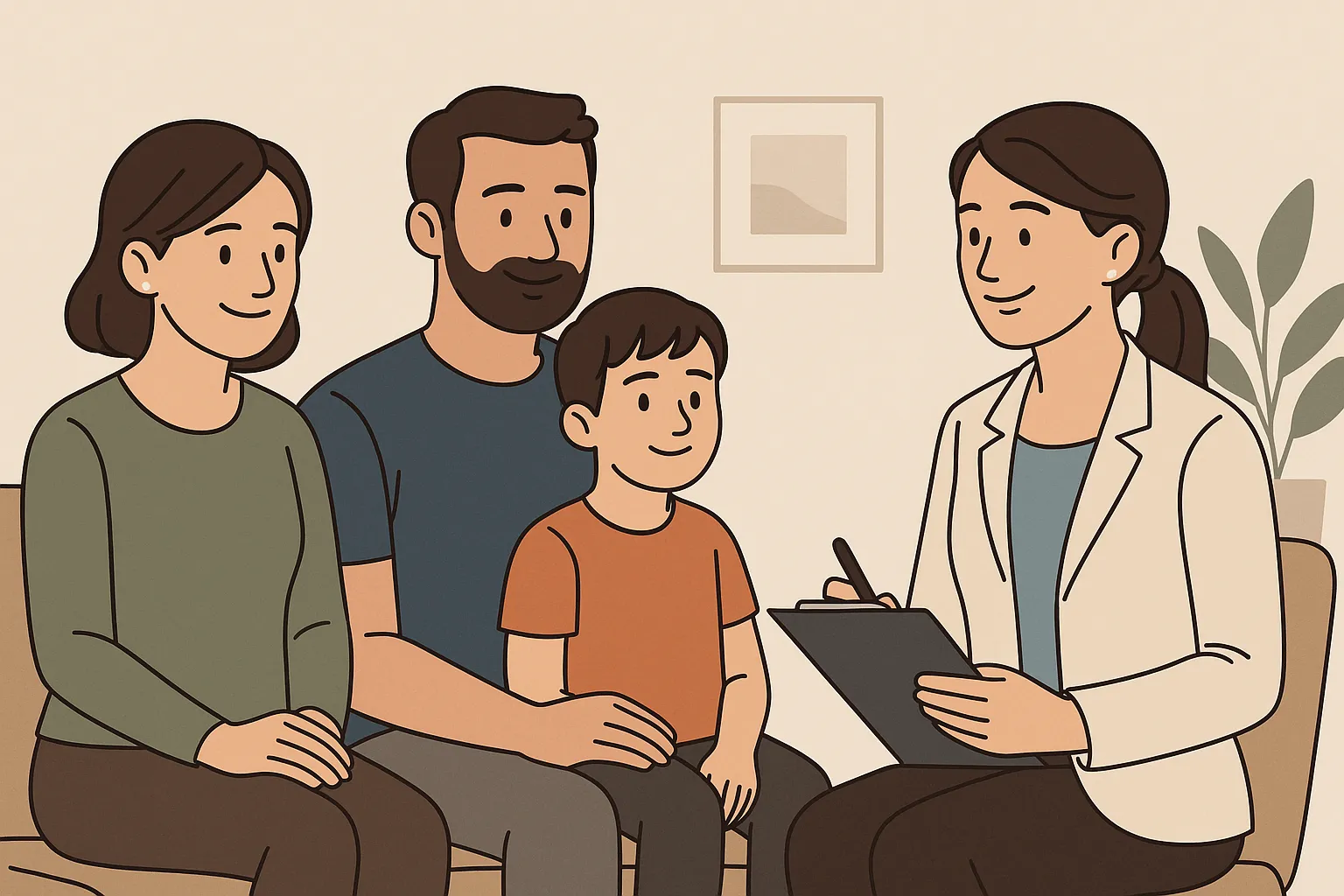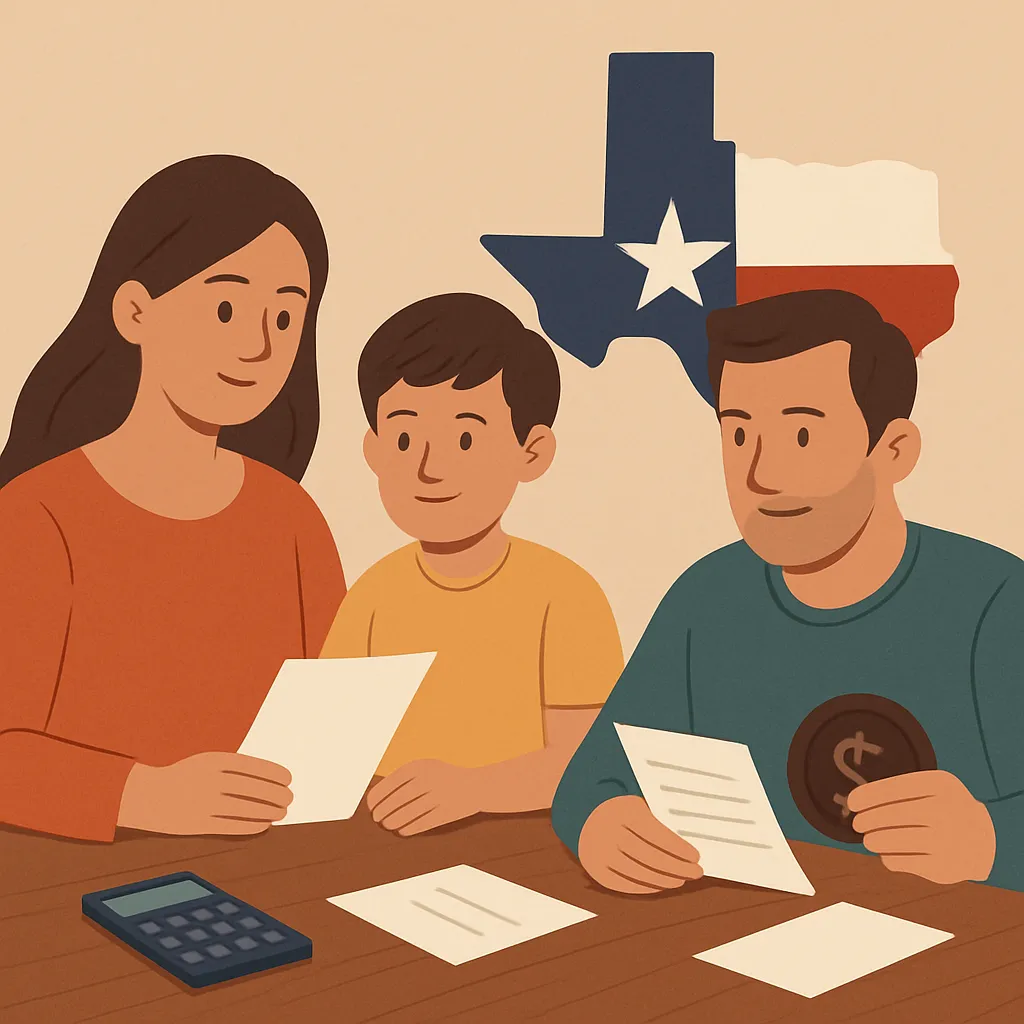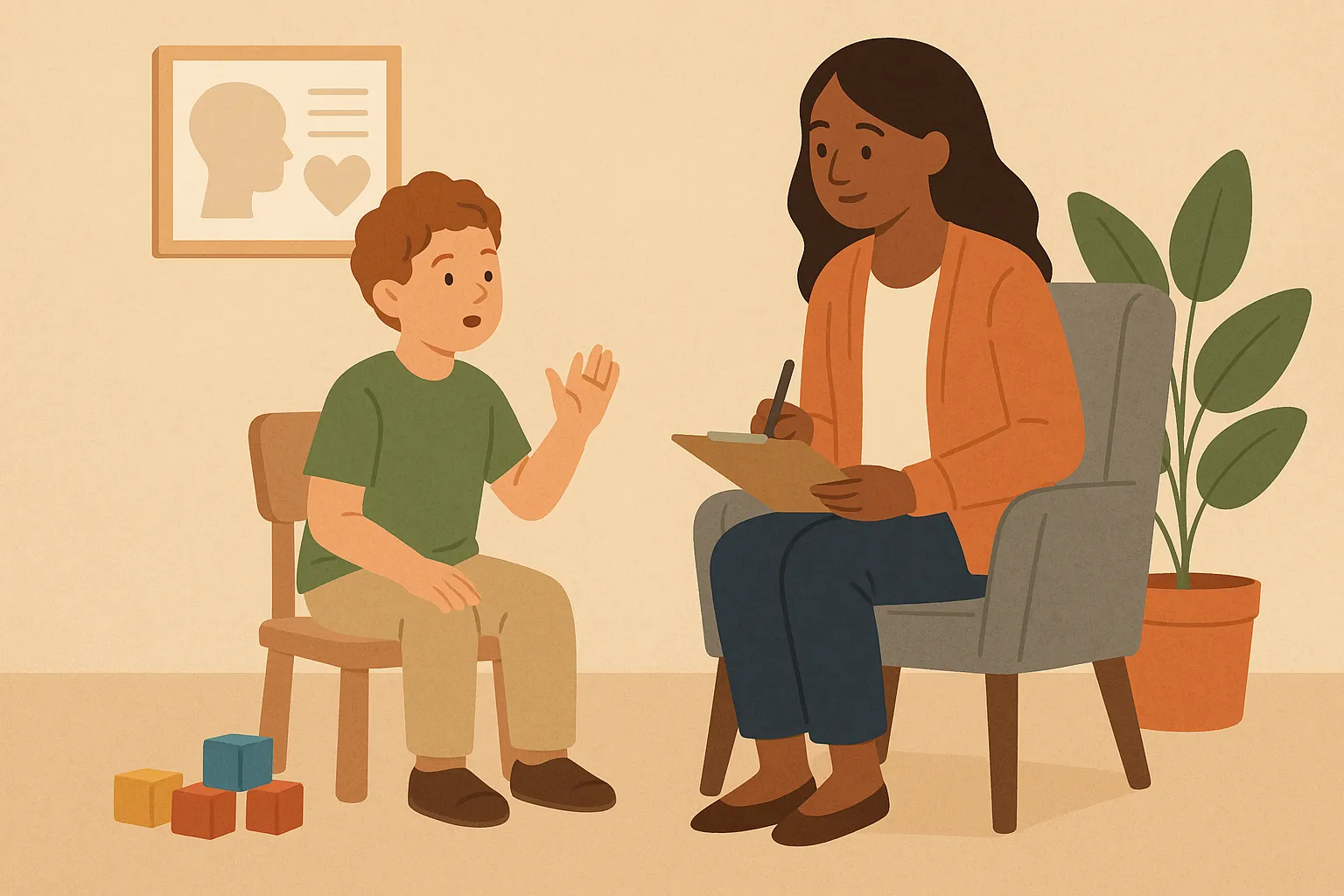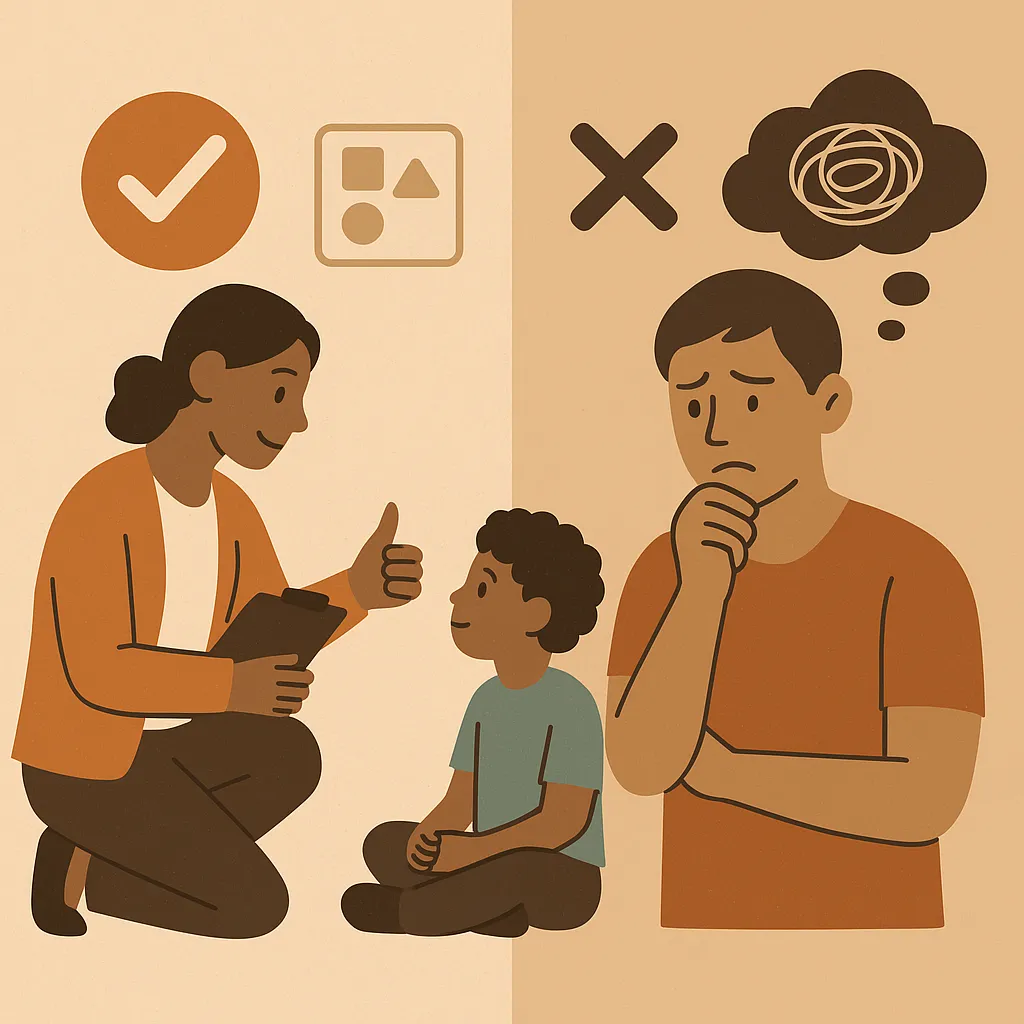How to Choose the Right ABA Provider for Your Child

How to Choose the Right ABA Provider for Your Child
Finding effective and compassionate care for a child with autism spectrum disorder (ASD) is a top priority for parents. Applied Behavior Analysis (ABA) therapy is a widely recognized and evidence-based treatment option, but finding the right ABA providers can be challenging.
This guide is designed to simplify the process, providing you with a clear understanding of ABA therapy, its benefits, and the steps involved in choosing a qualified provider.
The Role of ABA Providers
ABA providers play a multifaceted role in delivering effective therapy. A Board Certified Behavior Analyst (BCBA) leads the process, conducting assessments, developing individualized treatment plans, and overseeing the implementation of therapy. They work closely with families to understand the child's strengths, challenges, and goals. BCBAs also supervise Registered Behavior Technicians (RBTs), who deliver one-on-one therapy sessions.
Good providers actively involve parents in the treatment planning process, offering training and support to reinforce learned skills at home. This collaborative approach ensures that therapy is integrated into the child's everyday life.
What to Look for When Choosing an ABA Provider
Finding the right ABA provider is a big decision. Here's what to consider:
Credentials and Certifications
First, check credentials. Board Certified Behavior Analysts (BCBAs) have rigorous training and should hold current certifications. Look for providers accredited by the Behavioral Health Center of Excellence (BHCOE), a recognized standard for quality ABA care. This accreditation demonstrates a commitment to ethical practices and ongoing professional development.
Experience and Specializations
Look for providers with experience working with children similar in age and with similar needs to your child. Some providers specialize in specific areas, like autism spectrum disorder or developmental delays. Finding a provider with relevant expertise can make a real difference.
Treatment Approaches and Methodologies
When you're researching providers, ask about their specific approach. ABA therapy uses a range of evidence-based strategies, like positive reinforcement and skill acquisition training. Understanding their approach will help you choose a provider whose methods align with your family's values and your child's learning style.
Provider Reputation and Track Record
Look for online reviews and ask for referrals from other parents or healthcare professionals. A provider's reputation speaks volumes about the quality of care they provide.
Family Involvement Policies
Ask potential providers about their family involvement policies. How do they incorporate parents and caregivers into the treatment process? Do they offer training and support? Family involvement is crucial for successful ABA therapy.
Where to Find Reputable ABA Providers
Once you know what to look for in a provider, the next step is finding trusted options in your area. Here are the places families usually begin their search:
Online Directories and Resources
Several online directories can help you locate ABA providers near you. Start your search with resources like the Behavior Analyst Certification Board (BACB) website, which offers a registry of certified professionals.
Referrals from Healthcare Professionals
Your child's pediatrician, therapist, or other healthcare professionals can be valuable resources for referrals. They often have connections with ABA providers in the community and can offer recommendations based on your child's specific needs.
Local Support Groups and Networks
Connecting with local autism support groups and networks can provide valuable insights and recommendations for reputable ABA providers. These groups often consist of parents and caregivers who have firsthand experience with different providers in the area.
Insurance Provider Directories
Your insurance company's directory can be a helpful starting point for finding ABA providers within your network. Once you have a list of potential providers, verify their credentials and accreditations. Look for providers with accreditations like the Behavioral Health Center of Excellence (BHCOE), which indicates a commitment to quality care.
Evaluate ABA Provider Quality
Once you’ve compiled a list of potential ABA providers, how do you narrow it down to the best fit for your child and family?
Client Reviews
Seek out feedback from other families. Online reviews and testimonials can offer valuable insights into a provider's strengths and weaknesses. Look for patterns in the feedback. Are families consistently praising the provider's communication or expressing concerns about certain aspects of the program?
Treatment Success Rates
While every child's progress is unique, inquire about the provider's general treatment success rates. How do they measure progress, and what kind of outcomes have they achieved for children with similar needs?
Provider-Family Communication
Open and honest communication is crucial for a successful therapeutic relationship. During your consultations, assess how well the provider communicates. Do they actively listen to your concerns, answer your questions thoroughly, and explain concepts clearly? Do they offer various communication methods (e.g., email, phone calls, in-person meetings) to suit your preferences?
Trial Sessions
Many providers offer trial sessions or consultations. This is an invaluable opportunity to observe the provider interacting with your child, get a feel for their teaching style, and ask any remaining questions. A trial session lets you see firsthand if the provider's approach aligns with your child's needs and your family's values. Use this time to assess the environment, staff interactions, and overall atmosphere of the clinic.
Your First ABA Session
The initial ABA session focuses on getting to know your child and your family. The therapist will likely observe your child in their natural environment, whether that's at home or in a play setting. This observation helps the therapist understand your child's current skills, behaviors, and communication style. It's also a chance for you to share your goals and priorities for your child's development.
Open communication with the ABA provider is crucial, so don't hesitate to voice any questions or concerns. Choosing the right provider is a significant decision, so take your time and find a team that feels like the right fit for your family.
Questions to Ask Your Provider
Asking the right questions helps you determine if a provider aligns with your family's needs.
- Inquire about the provider's credentials and certifications, making sure they have the necessary qualifications and experience.
- Ask about their specific treatment approach and how they tailor it to each child's unique needs.
- Discuss their experience working with children similar to yours.
- Inquire about their success rates.
- Discuss how the provider involves families in the therapy process, as family participation plays a vital role in a child's progress.
A reputable provider will be transparent and willing to answer your questions thoroughly.
Alpaca Can Help You Choose the Right ABA Provider
Finding the right ABA provider is a big decision, and it’s one that no family should have to navigate alone. At Alpaca Health, we’re here to make the process clearer, simpler, and less overwhelming.
We connect families with trusted, local ABA providers, streamline care coordination, and give you the resources you need to feel confident in your choice. Schedule a free consultation today to see how Alpaca can support your family’s next step to starting ABA therapy.
Frequently Asked Questions
What is the difference between a BCBA and an RBT?
A Board Certified Behavior Analyst (BCBA) is a master's level clinician who conducts assessments, designs treatment plans, and supervises the implementation of ABA therapy. A Registered Behavior Technician (RBT) is a paraprofessional who works under the close supervision of a BCBA, delivering one-on-one therapy sessions and implementing the treatment plan. Think of the BCBA as the architect and the RBT as the builder.
How do I know if ABA therapy is right for my child?
If your child has an autism spectrum disorder (ASD) diagnosis or other developmental disabilities and is experiencing challenges with communication, social skills, behavior, or daily living skills, ABA therapy might be beneficial. It's always best to consult with your child's pediatrician or a developmental specialist to discuss whether ABA is an appropriate intervention. They can help you understand the potential benefits and determine if it aligns with your child's individual needs.
How can I find affordable ABA therapy?
ABA therapy can be expensive, but several options can help make it more affordable. Many insurance plans now cover ABA therapy, so check with your provider to understand your coverage. If you're facing financial constraints, explore financial assistance programs offered by organizations like the UnitedHealthcare Children's Foundation or TACA (Talk About Curing Autism). Medicaid also covers ABA therapy for eligible children under 21. Contact your state's Medicaid office to learn about eligibility requirements and coverage details.
What should I look for when choosing an ABA provider?
Look for providers with experience, appropriate credentials (like BCBA certification), and a treatment approach that aligns with your family's values. Check for accreditation from reputable organizations like the Behavioral Health Center of Excellence (BHCOE). Read online reviews, ask for referrals, and schedule consultations with several providers to find the best fit for your child and family. Don't hesitate to ask questions about their experience, treatment methods, family involvement policies, and communication practices.
How involved will I be in my child's ABA therapy?
Family involvement is crucial for successful ABA therapy. A good provider will actively involve you in the treatment planning process, offer training and support, and teach you strategies to reinforce your child's learning at home. The more involved you are, the better equipped you'll be to support your child's progress and create a consistent learning environment.
High Quality, Local ABA
If you are ready to partner with a local BCBA and receive the highest quality of care, reach out today!













